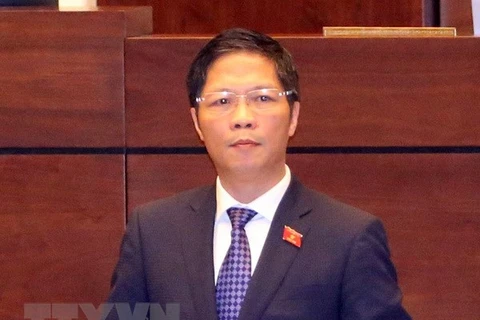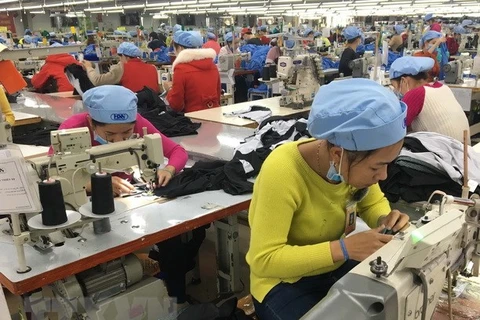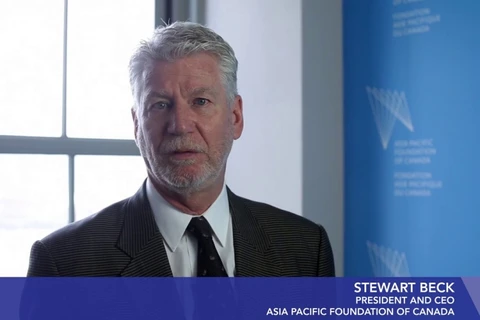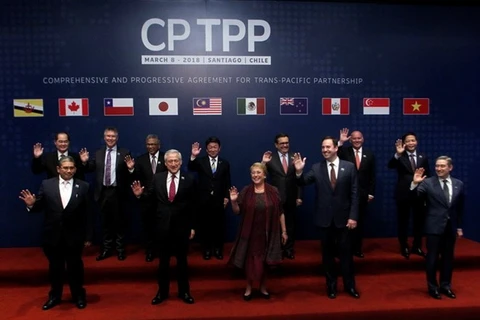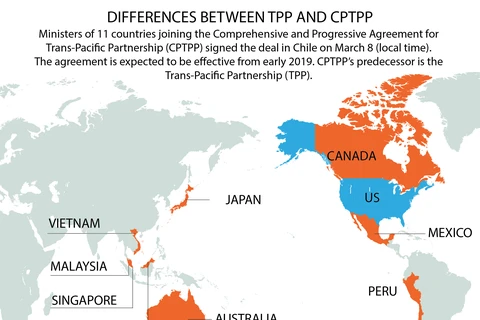 Canada's Minister of International Trade Francois-Philippe Champagne (L), New Zealand's Trade Minister David Parker (R) and Chile's Foreign Minister Heraldo Munoz (Source: VNA)
Canada's Minister of International Trade Francois-Philippe Champagne (L), New Zealand's Trade Minister David Parker (R) and Chile's Foreign Minister Heraldo Munoz (Source: VNA) Buenos Aires (VNA) – Canada, New Zealand and Chile made a joint statement on the sidelines of the signing ceremony of the Comprehensive and Progressive Agreement for Trans-Pacific Partnership (CPTPP) in Chile on March 8 (local time), vowing to intensify cooperation within the agreement framework.
Canada's Minister of International Trade Francois-Philippe Champagne, New Zealand's Trade Minister David Parker and Chile's Foreign Minister Heraldo Munoz highlighted the importance of establishing political understanding to jointly deal with CPTPP-related issues for the interests of each country’s people.
They also committed to strengthening a mechanism to address disagreements between investors and the State, especially those in public policy.
[Minister: CPTPP reflects Vietnam’s global integration]
Heraldo Munoz stressed that trade liberalisation is important, but its benefits have to reach all people to help reduce inequality and poverty, while boosting the interests of big enterprises.
He also called for more opportunities created for women, ethnic minorities and other vulnerable groups in the community.
Meanwhile, Champagne and Parker emphasised the importance of turning the agreement into a model of international cooperation, not only in trade but also in other fields such as climate change and environmental protection.
The official signing of CPTPP took place in Santiago de Chile on March 8 (local time), with the participation of representatives from 11 member countries, namely Chile, Australia, Brunei, Canada, Malaysia, Mexico, Japan, New Zealand, Peru, Singapore and Vietnam.
CPTPP was launched a year ago after the US withdrew from the Trans-Pacific Partnership (TPP) agreement.
The content of CPTPP was basically unchanged from the original TPP with 8,000 pages, except for the suspended implementation of 22 provisions mainly related to intellectual property. It sets high criteria in numerous fields, including labour, the environment, intellectual property, digital economy and cyber security.
The official signing of the pact will facilitate the promotion of economic growth and job generation, poverty reduction, and improvement of people’s living conditions. With its commitment to market opening, CPTPP delivers a strong message against protectionism, while proving that an opening economy will benefit member nations, according to experts.
The pact will create one of the world’s largest free trade blocs with a combined market of 499 million people and GDP of around 10,100 billion USD, accounting for 13.5 percent of the global GDP.
The pact will come into force 60 days after it is fully ratified by at least six of the 11 members. -VNA
VNA
